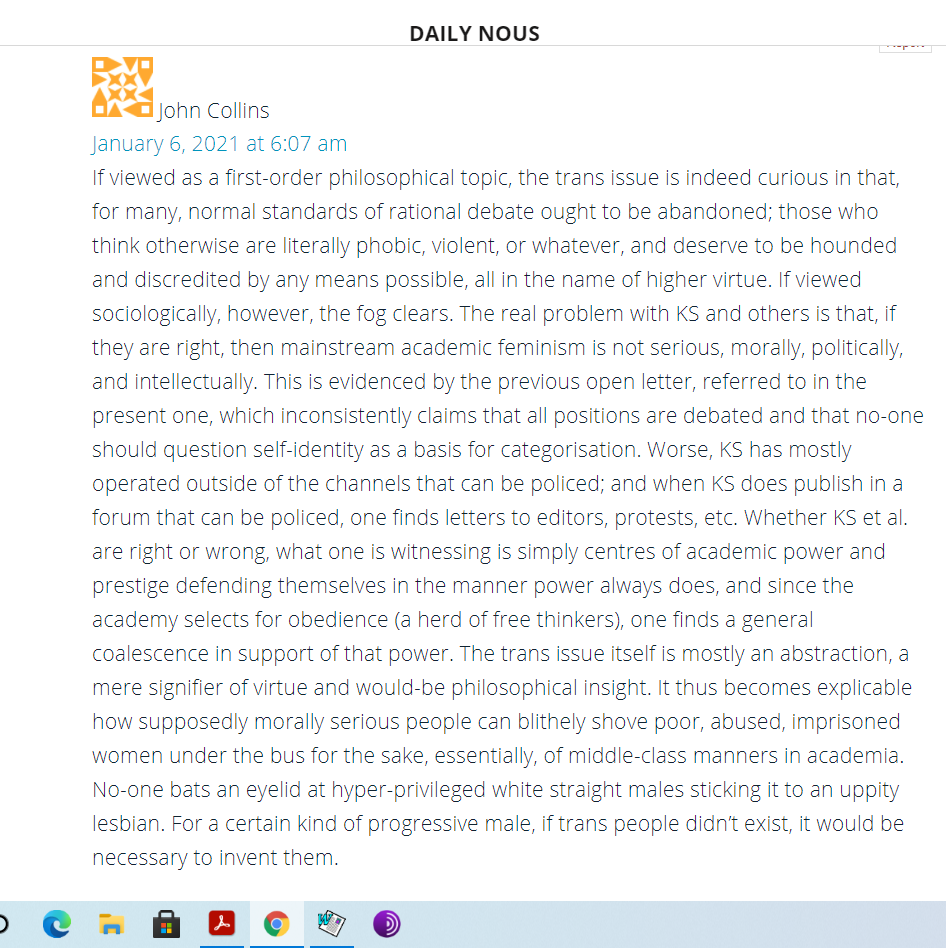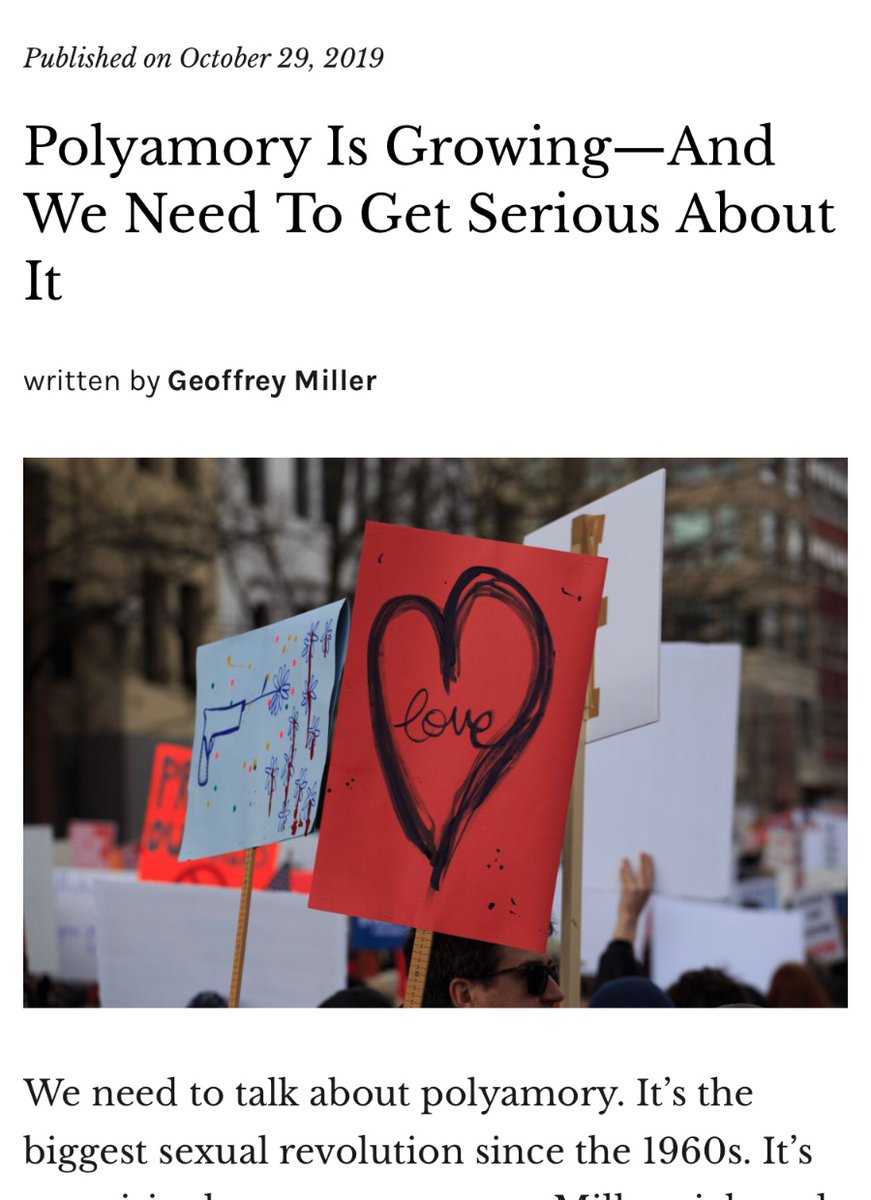
This is pretty clear.
https://twitter.com/DanBuk4/status/1349201119675822081
I would help us if we tried to be more disciplined in our use of these terms. If what we're talking about is the co-regulation of speech among participants in public discussion, we're talking about conditions for public discourse, not about questions for free speech.
Once we think of it as conditions for public discourse, it becomes much clearer that participants can indeed attempt to regulate each other. Including by shouting over each other. Or by telling someone else that they want them to stop speaking.
Was that person who said to someone else, "Be quiet now!" or "It's not your turn!" or "We don't want to hear from you anymore!" right to do so? The answer to the question depends on what shared understanding we have of the role and process for public discourse in that situation.
And it is always situational. Or contextual. Speech on campus or academic speech is public or semi-public speech in a different context than speech in a public square or on a social media app. There, we can have a different conception of what the role, process, form of speech is.
This also means that when people assert what in each academic forum we must hear all possible opinions that are trying to come forward, and that we owe it to the idea of good research or truth to always hear every opinion out, that stands to be challenged.
We might agree on that.
And we might not.
Academic discussion has disciplinary practices added to it. In a few disciplines it actually seems to be a well shared view that we should hear all those opinions out. In most others, it's not. People can get cut short or not called on.
And we might not.
Academic discussion has disciplinary practices added to it. In a few disciplines it actually seems to be a well shared view that we should hear all those opinions out. In most others, it's not. People can get cut short or not called on.
Again, this is not a matter of free speech. It is a matter of how in academic contexts--differing by discipline and by the precise nature of the situation--open or public or semi-public speech is co-regulated. Of how more central participants have more power in regulating others.
I wished university instructors and administrators wouldn't conflate these different concepts quite so often.
My point is not to say that speech shouldn't be as free as possible among public participants or among people in a campus setting. We can, and have, decided on some situations where it should be, including through the use of legal process and captured in case law.
My point is that when these concepts get muddled together into "free speech," then the concept of "free speech" is rife for abuse. Some people will, and have, claimed that someone's free speech was impeded when their manuscript was rejected by a research journal editor.
No.
Obviously.
But maybe not quite so obvious once we're allowing ourselves to talk about "free speech" in relation to scholarly publication when the concept of "free speech" simply does not apply.
Obviously.
But maybe not quite so obvious once we're allowing ourselves to talk about "free speech" in relation to scholarly publication when the concept of "free speech" simply does not apply.
@threadreaderapp unroll
• • •
Missing some Tweet in this thread? You can try to
force a refresh










